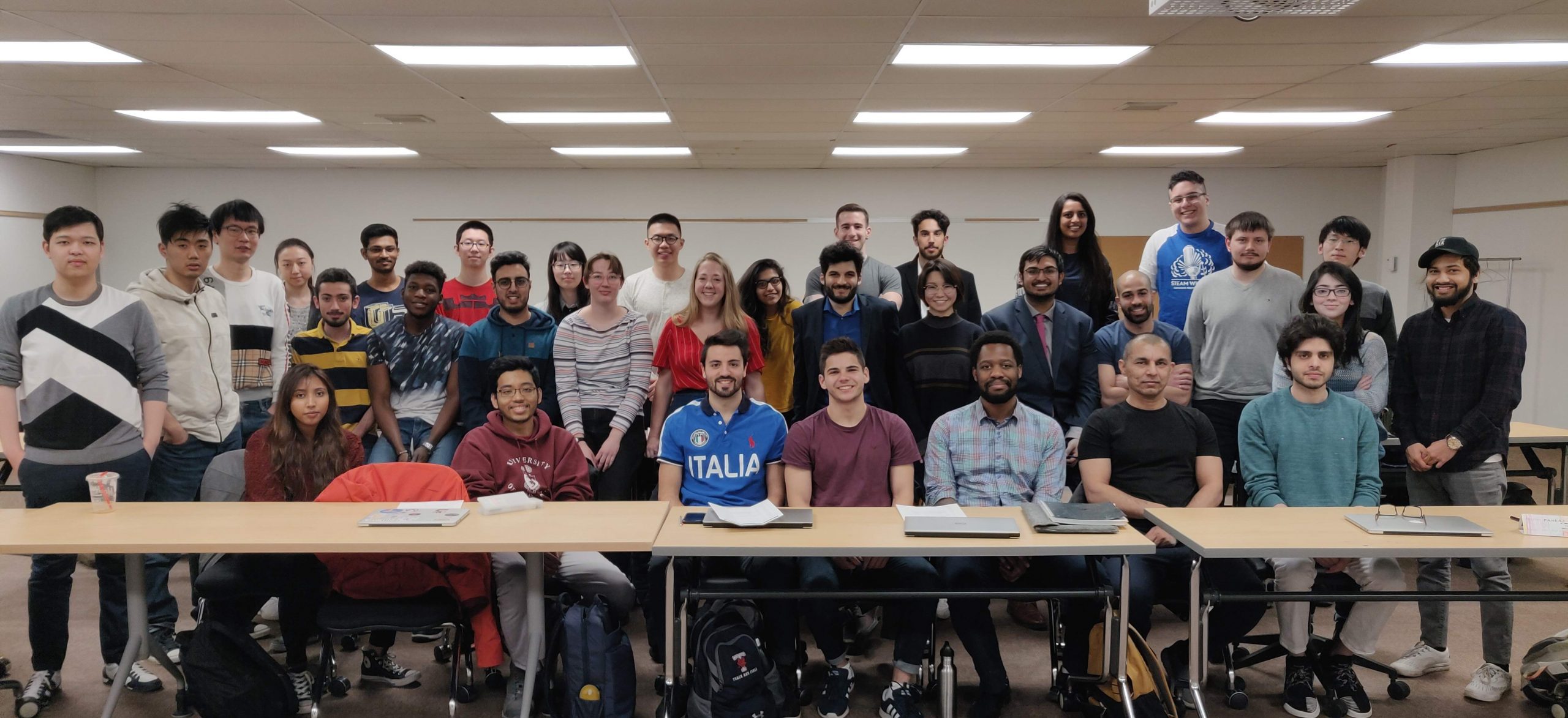
Course Overview
As the world globalized over the past half century, so too did the profession of engineering. More and more engineers – both in the private and non-profit sectors – sought to apply their skills to address vexing global challenges, and in the process, they sowed the seeds for the formation of what is today referred to as the Engineering for Global Development (EGD) community. Practitioners of EGD are concerned with understanding how technological innovation may be harnessed to address the perverse challenge of global poverty. As a field of study, EGD emerged, in large part, because students such as yourself persisted in asking their institutions to teach them how they can capitalize on their education in order to effect a positive change in the lives of those who lack access to the basic necessities of life: basic human rights such as adequate nutrition, clean water, and safe shelter. In the past several decades, dozens of complex innovations such as fortified food staples and mobile finance – along with simpler ones, such as all-terrain wheelchairs made from recycled bicycle components – have been brought to market and have already helped lift millions out of poverty. However, as you will come to learn in this course, understanding the problems wrought by poverty, and coming up with suitable, sustainable, and scalable solution requires a multi-disciplinary approach which combines systems analysis, human-centered design, and savvy delivery models which foster inclusive economic growth and reach the hardest to reach.
Course Motivations
It is said that 90% of the world’s engineers spend their careers designing products and services for the richest 10% of the world’s population. Meanwhile, the remaining population – the so-called Base of the Pyramid (BoP) – are forced to contend with overpriced and subpar products that fail to improve their standard of living. What does it take to design and deliver the right products that can unlock the $4 trillion BoP market?
At the same time, we must be cognizant of the fact that every failed attempt to leverage technology to help the poor arouses the skepticism of its supposed beneficiaries, and it discourages donors from investing in further initiatives. We owe it our profession, to our donors/investors, and to our customers in the Global South, to understand how we can learn from past failures and how we can do an effective job of addressing key challenges in global development with clever innovations (which need not be costly nor cutting-edge).
How We Accomplish That in APS420/1420
Through a combination of lectures, guest talks, readings, and case studies, we will learn about the history and competing theories of international development, globalization, and foreign aid; major government, non-government, and multilateral actors in development; emerging models of development (social entrepreneurship, microfinance, risk capital approaches); classic diffusion of technology models that derive from anthropology, sociology, psychology, geography and migration studies; and the economic history that trace barriers to the use of innovations. This course will specifically focus on the impact on innovation as it applies to rural agricultural development, humanitarian engineering, and WASH.
By the end of the course, students are expected to have:
- Shed any incorrect, preconceived notions about poverty and aid
- Articulate the role of technology in international development
- Adopt a systems-based mindset to understanding and solving problems in global development
- Be able to participate in contemporary discourse about development and contribute to ongoing discussions about technology, its role in development, as well as its limitations
- Think critically and creatively about development interventions and aid projects
Intended Audience
This course is primarily targeted toward senior engineering undergraduates and graduate students in the Faculty of Applied Science and Engineering. However, it is open – and may be of interest – to graduate students from the Munk School of Global Affairs, the Rotman School of Management, and select departments in Arts and Science.
Past Course Feedback
"[APS420] has been the most interesting and inspiring course in my [university] career"
"This course really taught me to look at the world in a different way, without long–established bias."
"Very interesting and engaging concepts learned in this course. I thoroughly enjoyed every bit of this course"
"Eye–opening content, great in–class discussion."
2020 Group Project Highlight
Each year, APS420 requires students to complete a group project, the objective of which is to enable students to (a) critically assess the role, suitability, usefulness, and limitations of technological innovations in global development initiatives, (b) identify market gaps, (c) and propose thoughtful, comprehensive solutions to pressing problems facing the Poor.
To that end, teams diagnose gaps/problems/social ills in low-income countries and articulate a fully-formed solution to fill that gap based on the knowledge they learned from the course content. At the end of the semester, students present their proposal to the rest of the class, and votes are taken on the best overall concept.
For the 2020 winter semester, the winning team comprised Adele Nikitina, Meng (Sonia), Marie Floryan, Ben Mucsi, and Eric Boszin, all students who graduated in the same semester.





For their project, the team focused on the challenge of energy poverty in Myanmar. Against the economic, political, and environmental backdrop of the country's current turmoil, they proposed a mini-grid-based design to provide electricity to rural and remote communities. In combination with financing structures, education, and provision of technologies to utilize the added energy capacity, their solution aims to provide a holistic approach to alleviating poverty through electrification.
